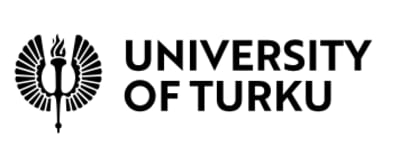
University of Turku

Introduction
Multidisciplinary. International. Research University.
The University of Turku is an active academic community of 25,000 students and employees, which conducts groundbreaking and interdisciplinary research. We engage in the development of Finnish and international education and innovations paving the way for a brighter future.
In addition to Turku, we have campuses in the cities of Rauma and Pori and operations all over Finland – all the way from Lapland to the Archipelago Sea.
Effective research
We conduct research and work towards a better future and well-being.
We promote free, effective, and open science. Our research is multidisciplinary and international, aiming towards new, interdisciplinary initiatives.
Our research is profiled through six thematic areas:
- Biodiversity and sustainability
- Future technologies and digital society
- Cultural memory and social change
- Children, young people, and learning
- Health, diagnostics, and drug development
- Sea and maritime studies
10 Best reasons to choose UTU
- UTU is one of the most international universities in Finland.
- Programs based on our strengths in research.
- Excellent career prospects for graduates.
- Generous scholarships are available for talented students.
- Professors and lecturers that challenge you to learn.
- Personal support and services throughout your studies.
- Modern facilities and learning environments.
- A wide selection of optional and minor studies.
- Active student life and versatile activities.
- Compact campus where all is near.
Read more: utu.fi/degrees
Mission Statement
The University of Turku is an internationally active and attractive research university whose strength lies in high-quality, multidisciplinary research.
We promote education and free science and provide higher education based on research. We collaborate closely with Finnish society and actively participate in the development of the region.
Strategic Goals
We inspire unique learning experiences and outstanding learning outcomes
We educate future experts who will solve complex scientific questions and social issues and build a sustainable world. The education we provide encourages students towards independent critical thinking and achieving comprehensive learning goals. Our graduates have excellent collaboration skills, the ability to create work for themselves and others, and expertise that can be applied to different sectors of society.
We cultivate an engaging and exceptional research environment
The research conducted at the University of Turku is ethical and scientifically excellent. Our research has a significant impact and meets future global challenges. Close national and international research collaboration strengthens the University’s position among the leading research universities in the world.
We are a proactive and dynamic partner
The University of Turku carries global responsibility and is a proactive partner in development. Excellent research and education create the basis for our increasing impact. We train experts with a capacity for change, who build a sustainable future in different sectors of society.
We are an active expert community
We are an equal and diverse University community with a strong set of values. We follow the principles of sustainable development. The well-being of our University community is the basis of our success. Well-being is reflected in motivation, seamless collaboration, and good results.
Thanks to our outstanding services, compact campus, and active student life, international students feel at home and safe from the very beginning of their stay.
Inspiring research careers
The well-being of the entire University community is important to us. We want to support young researchers in their careers and offer a research environment and community that inspires them to unique achievements and results.
The preventive effect of xylitol on teeth decay was first discovered at the Institute of Dentistry of the University of Turku. Each year, over a hundred different innovations and dozens of invention disclosures originate from the research conducted at the University.Innovations from research
Creative, agile, and innovative
We develop entrepreneurial attitude and activities in the entire University. We offer a growth platform for startups and spinoffs stemming from top research.
Build your future career with us
The University of Turku is a popular destination for exchange, Master’s degrees, and doctoral studies. We collaborate with over 400 universities worldwide and offer our students a wide selection of courses and programs taught in English.
Welcome to the Student City of Turku
The Turku Campus of the University of Turku is located close to the city center and the Aura river near the other higher education institutions, Turku Science Park companies, and the Turku University Hospital. The campus area extends from Turku Cathedral all the way to the Kupittaa railway station.
All the important services for students, personnel, and visitors alike are found close to the campus. Getting around everywhere is handy either by walking, cycling, or by the Föli city buses.
The joint goal of the higher education institutions of Turku and the City of Turku is to be Finland's best student city! Active student life, easy and well-functioning public transport, and affordable housing are Turku's great assets. As many as 99% of the city's students of higher education institutions recommend Turku as a student city to their friends.
Learn more about the student city of Turku on Study in Turku Youtube channel!
Reasonable living costs with many housing options, full-scale public and private services, vivid cultural life, and a variety of outdoor recreation possibilities by the surrounding Archipelago Sea guarantee that Turku offers the best quality of life and is a lucrative location for students as well as for skilled professionals.
According to the strategic target set by the City, by 2029 Turku will be the Northern Baltic’s most interesting city, with a strong foundation in both arts and sciences. Turku is building up unique assets – creative manufacturing industry, biotechnology, logistics expertise – through cluster conveniences and synergies.
Welcome to Turku, Finland!
Gallery
Want to receive deadline reminders, event invitations and tips once a month to your email?
Subscribe to the Future with UTU Newsletter sent by Admission Services of the University of Turku.
Locations
Programs
- Master's Degree Program in Finnish and its Languages
- Master's Degree Programme in Biosciences: Evolutionary Biology
- Master's Degree Programme in Biosciences: Molecular Systems Biology
- Master's Degree Programme in Education and Learning
- Master's Degree Programme in Exact Sciences: Astronomy and Space Physics
- Master's Degree Programme in Exact Sciences: Materials Chemistry
- Master's Degree Programme in Exact Sciences: Materials Physics
- Master's Degree Programme in Exact Sciences: Mathematics and Statistics
- Master's Degree Programme in Exact Sciences: Theoretical Physics
- Master's Degree Programme in Food Development
- Master's Degree Programme in Health Technology
- Master's Degree Programme in Inequalities, Interventions and New Welfare State
- Master's Degree Programme in Information and Communication Technology: Cryptography
- Master's Degree Programme in Information and Communication Technology: Cyber Security
- Master's Degree Programme in Information and Communication Technology: Data Analytics
- Master's Degree Programme in Information and Communication Technology: Robotics and Autonomous Systems
- Master's Degree Programme in Information and Communication Technology: Software Engineering
- Master's Degree Programme in Mechanical Engineering: Digital Design
- Master's Degree Programme in Mechanical Engineering: Digital Manufacturing
- Master's Degree Programme in Mechanical Engineering: Smart Systems
- Master’s Degree Programme in East Asian Studies
- Master’s Degree Programme in Futures Studies
- Master’s Degree Programme in Global Innovation Management
- Master’s Degree Programme in Materials Engineering: Health Technology Materials
- Master’s Degree Programme in Materials Engineering: Materials of Energy Technology

